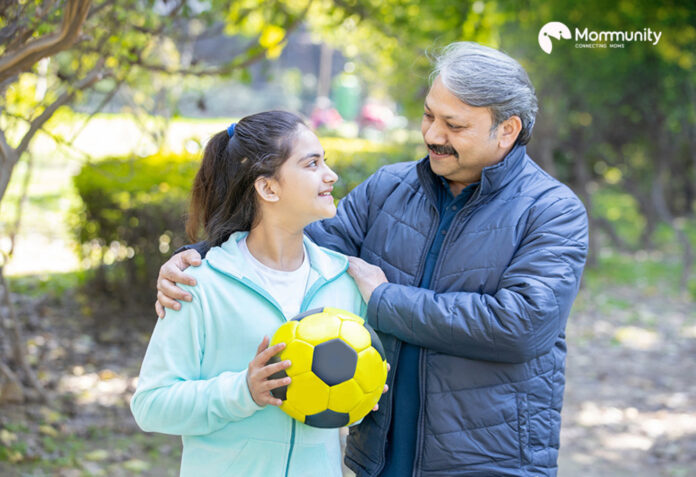Does raising a teenager in today’s digital age feel challenging? As a parent, are you wondering how to encourage your child to be more physically active? In today’s digital age, when screens become teenagers’ friends, it’s hard to push them towards physical activity and sports. With screens regularly involving their consideration, the significance of physical activity and sports in their day-to-day schedule is vital.
In this blog, you will learn more about why physical activities are imperative for teenagers and how you, as a parent, can empower your child to have a more beneficial, more dynamic way of life.
Physical Health Benefits
1. Health Growth and Development
Customary physical movement is essential for the correct development and advancement of young people. It builds solid bones and muscles, guarantees sound weight management and improves cardiovascular well-being.
2. Enhance Immunity
Locks in sports and physical exercises boost safety, making young people less vulnerable to common ailments like colds and flu.
3. Improve Sleep Pattern
Dynamic high schoolers tend to have superior rest quality. Physical effort makes a difference in directing their rest cycles, guaranteeing they get the rest required for scholastic and individual development.
Mental and Emotional Well-being
1. Stress Busters
Youngsters confront a parcel of weight. Physical movement could be a characteristic push reliever, discharging endorphins that raise disposition and combat uneasiness. It can, moreover, serve as a solid outlet for disappointment.
2. Boosted Self-Esteem
Physical activity can do wonders for a teen’s self-confidence. Accomplishing wellness objectives, acing modern aptitudes, and seeing physical enhancements can boost their self-image and give a sense of achievement.
3. Cognitive Benefits
Physical movement is connected to superior concentration, memory, and classroom behavior. Considers have appeared that dynamic youngsters perform superior scholastically, profiting from progressed brain work and center.
Social Skills And Teamwork
1. Team Spirit and Participation
Sports teach youngsters the value of cooperation and participation. These encounters are priceless, cultivating a sense of community and teaching vital social abilities that are useful in both individual and professional life.
2. Friendship and Social Networking
Locks in sports give youngsters openings to form modern companions and extend their social circles. These connections can offer bolster and camaraderie, contributing to their passion and social advancement.
Encouraging Physical Activity
1. Be a Role Model
Children regularly imitate their guardians. By maintaining a dynamic way of life yourself, you set a positive example for your young person to follow.
2. Make a Schedule
Energize your teen to incorporate physical movement into their daily schedule. This may be as straightforward as strolling or cycling to school, participating in after-school sports, or locking in family exercises like climbing or swimming.
3. Constrain Screen Time
Set sensible limits on screen time to guarantee it doesn’t meddle with physical action. Empower breaks from advanced gadgets and advanced open-air exercises instep.
4. Investigate Interface
Offer assistance to your teen by investigating distinctive sports and physical exercises to discover what they appreciate. Whether it’s group sports like soccer or ball or personal exercises like swimming or military expressions, finding energy can make working out more pleasant.
5. Give Support
Appear intrigued by your teen’s exercises, and give support. Go to their recreations, celebrate their accomplishments, and offer positive support.
6. Guarantee Security
Make any doubt that your teen has the fitting equipment and gets the significance of security in sports to avoid wounds. Teach them to warm up, cool down, and tune in to their bodies.
Barriers to Physical Activity
1. Time Management
Offer assistance to your teen in managing their time effectively to accommodate school, homework, and physical activity. Arranging and prioritizing can make it less demanding to fit work out into an active plan.
2. Access to Facilities
Guarantee your teen has got to secure places to be dynamic. This can be through community centers, nearby sports clubs, or school offices.
3. Overcoming Self-Consciousness
A few teenagers may feel self-conscious about their capacities. Energize a steady environment where exertion and advancement are esteemed over flawlessness.
The Final Note
In the end, physical activity and sports play an important part in the general advancement of teenagers. By engaging them in customary physical activities, your child can appreciate various physical health benefits, such as solid development and advancement, upgraded insusceptibility, and progressed rest designs. Additionally, physical activities act as effective stretch busters, boosting self-esteem and cognitive capacities, which in turn lead to way better scholastic execution.
Sports to educate valuable skills and teamwork, advertising openings for teens to construct friendships and expand their social network. By this blog you will understand the importance of physical activities and sports for teenagers.
By addressing common boundaries such as time administration, access to facilities, and self-consciousness, you’ll be able to help your teen lead a more beneficial, more energetic life. Keep in mind that the objective is to instill long-lasting propensities that prioritize physical action and wear, making a positive effect that expands well into adulthood.




